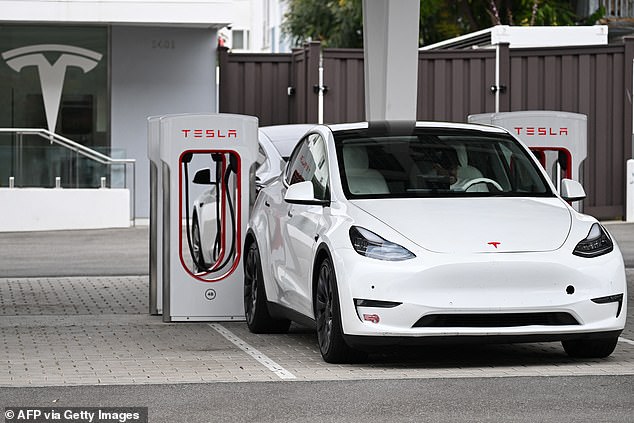Australia’s battery recycling industry is in “crisis” and unprepared for an influx of electric vehicles once they reach the end of their life, a federal inquiry has heard.
Representatives from the automotive and recycling industries issued the warning on Thursday at the EV Transition Inquiry in Sydney, where calls were also heard for a “battery passport” for electric cars, similar to efforts in Europe.
However, the federal government may have limited time to act on the recommendations, with one recycling organization saying the issue could become a major challenge within six years.
The parliamentary inquiry is investigating many aspects of the transport transition, including the impact of electric cars on the electricity grid, opportunities for fuel savings, demand for chargers and battery manufacturing and recycling.
Recycling facilities are already struggling with too few collection points and a lack of guidance and standards on battery recycling, Australian Recycling Council chief executive Suzanne Toumbourou told the inquiry.
“The recycling and waste sectors… are in crisis due to improperly disposed batteries causing fires in all types of facilities,” he said.
“We don’t have a sufficient collection system, we don’t have a sufficient extended producer responsibility system for batteries.”
The nation needs clear rules on battery labeling, transportation and disposal, including a ban on dumping them in landfills, before local facilities can break down and process EV batteries, Toumbourou said.
Old EV batteries are expected to become a major challenge for recyclers

A hearing was told that the few collection points for old batteries and the lack of regulations are creating problems
“All batteries, including those in electric vehicles, must be regulated,” he said.
‘These standards should extend to the handling, storage, transportation and processing of batteries at the end of their useful life.’
Many electric vehicle brands had already partnered with companies to process old batteries, Polestar Australia communications chief Laurissa Mirabelli said.
While Australian facilities were able to extract the valuable “black matter” from batteries containing metals such as lithium, cobalt and graphite, they were unable to process the material on land.
As well as stepping up recycling efforts, Australia should consider introducing regulations like those in Europe that label batteries and set a target for the recovery of critical minerals from them, Mirabelli said.
“It’s about transparency for customers,” he said.
“There is no standard way of establishing the climate impact of a battery or how the materials for that battery are sourced (in Australia), so the EU battery passport would be a really good standard for us to adopt here.”
A facility in Victoria has begun recycling electric vehicle batteries, although only into black mass for export, Battery Recycling Industry Association chief executive Katharine Hole told the inquiry.
Australia had a significant opportunity to recover critical minerals from electric cars, but the industry would need standards and support quickly to meet the challenge, Hole said.
“We have six years to really get this industry on its feet,” he said.
“As the volume of electric vehicles on the road grows in the coming years, they will arrive (for recycling).”
The inquiry is expected to hold public hearings in Melbourne, Brisbane and Canberra during August and September.


